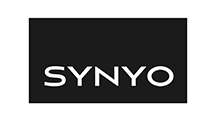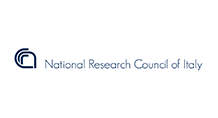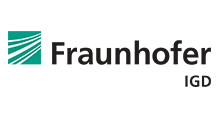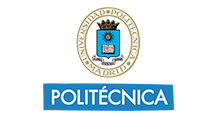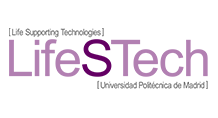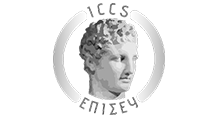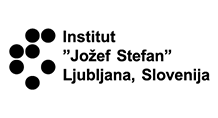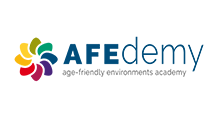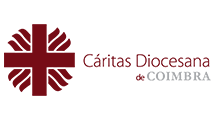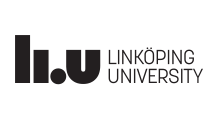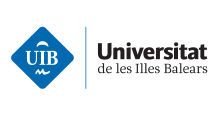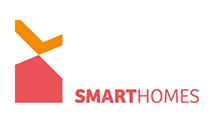SYNYO GmbH (SYNYO)
Research and Development Department
Description
SYNYO GmbH is a global-acting enterprise focusing on research, innovation and technology located in Vienna, Austria. SYNYO explores, develops and implements novel methods, approaches, technologies and solutions in various domains tackling societal, political, ecological and economical challenges. Analysing the impact of emerging technologies from an interdisciplinary perspective SYNYO has a multi-angled view on diverse topics. The SYNYO team consists of 30 high-skilled employees specialized in various scientific and technical fields like Social Sciences, Safety & Security, Energy & Sustainability, Urban Future, Smart Technologies, Smart Health, or Digital Systems. Working on national and international projects, till now SYNYO has been involved in various European research projects and has showed strong management capabilities as coordinator of three FP7, two AAL, one JPI Urban Europe and five H2020 projects, resulting in a unique project collaboration tool (Collabto) and a smart research project management methodology (SPIRITS). Within all projects the interdisciplinary team of SYNYO is taking over roles along the whole project lifecycle including basic investigations, requirements analyses, concept designs, implementations, development, piloting, validations as well as research dissemination, communication and exploitation tasks. SYNYO is well connected within the scientific community and will provide own research and innovation network platforms in near future. In 2015 and 2016, SYNYO was among the Top 3 most successful research-oriented SMEs in Austria (H2020 Performance Monitor by FFG-the Austrian Research Promotion Agency).
CNR (ISTI)
Institute of Science and Information Technologies
Description
CNR-ISTI is committed to producing scientific excellence and to playing an active role in technology transfer in Italy. It comprises 14 research laboratories and 3 technological centers; it employs around 160 researchers and a large number of PhD students. CNR-ISTI has been involved in many national and international ICT projects. In particular, two laboratories of CNR-ISTI will contribute to the project, namely Wireless Networks Laboratory (WN Lab) and Signals and Images Laboratory (SI Lab). The WN Lab is lead by Dr. Erina Ferro and it consists of 24 researchers and technicians conducting research and development activities around 3 main areas: sensing technologies, Ambient Intelligence solutions and study of communication protocols. Specifically, the WN Lab has a robust experience in wireless sensor networks integrated with distributed and mobile middleware for context-aware applications. The laboratory is founder member of the AALOA initiative (AAL Open Association) and the institute is actively supporting AALOA by allocating resources for the management of the incubated projects. CNR-ISTI is also committed in the EIP-AHA Action C2 on development of interoperable independent living solutions, and it is member of EIT ICT Lab node of Trento. The SI Lab is a research Lab working in the fields of signal acquisition and processing, image understanding, computational intelligence, medical imaging, knowledge representation and modelling, high performance and distributed computing. The Lab is composed of 24 researchers and 4 technicians. SI Lab has been involved in several EU projects, National and Industrial projects in various field as medical imaging, assistive technologies, distributed systems and smart devices. Recently, SI Lab worked in projects (founded by Telecom and bank Foundations) devoted to medical rehab systems based on gesture recognition using contactless sensors and data communication in dedicated networks, where proprietary software has been developed for real-time interactive and processing.
Fraunhofer Institute for Computer Graphics Research IDG (FH-IGD)
Competence Center for Smart Living & Biometric Technologies
Description
Fraunhofer is Europe’s leading application-oriented research organization geared to people’s needs in health, security, communication, energy and the environment. Its research activities are conducted by 72 institutes and research units at locations throughout Germany. The Fraunhofer-Gesellschaft employs a staff of more than 26,600, who work with an annual research budget of 2.6 billion euros. Of this sum, 2.2 billion euros is generated through contract research. Around 70 percent of the Fraunhofer-Gesellschaft’s contract research revenue is derived from contracts with industry and from publicly financed research projects. International collaborations with excellent research partners and innovative companies around the world ensure direct access to regions of the greatest importance to present and future scientific progress and economic development.
The institute participating in PlatformUptake.eu is Fraunhofer Institute for Computer Graphics Research IGD, the world’s leading institution in applied research in the field of visual computing with subsidiaries in Darmstadt, Rostock, Graz and Singapore. With a research budget of 21 M€ in 2018, ca. 181 (full-time equivalent) employees of Fraunhofer IGD worked within 260 projects (survey, consulting & research).
The competence centre “Smart Living & Biometric Technologies (SLBT)” at Fraunhofer IGD in Darmstadt has an IoT- oriented research and innovation focus on open platforms, semantic interoperability, ambient intelligence, ambient assisted living and user interaction in intelligent environments. This is topped off by the development of innovative and future-oriented solutions for the market that simplify human lives and help citizens to stay active and independent. The SLBT team of Fraunhofer IGD had a leading role in the development of universAAL and is a main pillar for its sustainability.
In December 2017, the Fraunhofer-Gesellschaft was awarded the Logo »HR Excellence in Research« from the European Commission in recognition of its outstanding Integrated Human Resources Management. The Logo »HR Excellence in Research« is based on the 40 principles of the European Charter for Researchers and the Code of Conduct for the Recruitment of Researchers (»EU-Charta & Code«). As Europe’s leading organization for applied research and as project partner in many EU-projects, Fraunhofer fulfills these principles. Fraunhofer is one of the first organizations for applied research in Germany to receive the Logo.
Universidad Politécnica de Madrid (UPM)
Life Supporting Technologies
Description
Universidad Politécnica de Madrid (UPM) is the largest Spanish technological university specialized in all engineering fields and architecture. With two recognitions as Campus of International Excellence, its outstanding research activity together with its highly-qualified professional trainings, make UPM a really competitive university at international level. More than 2.400 researchers carry out their activity at the UPM, grouped in more than 200 Research Groups, 20 Research Centers or Institutes and 55 Laboratories, all of them committed to transform the knowledge generated into innovation advances applied to the productive sector, contributing to solve the challenges of the European citizens.
The intense collaboration with governmental bodies and industry guarantees that research at UPM offers real solutions to real-world problems. The dynamism of R&D&I activity at the UPM, together with the transfer of knowledge to society, are among its lines of strategy. These two commitments place UPM among the Spanish universities with the greatest research activity, both at national and international level. UPM highly innovation driven commitment is showed by the application for around 40 patents/year and by the generation around 20 spinoff/year (70% survival rate). All this shows that UPM is an institution committed to the transfer of knowledge generated through its research structures to society, and its transformation into advances and technological developments applied to the productive sector.
Life Supporting Technologies (LifeSTech) is a research, development and innovation group, part of Universidad Politécnica de Madrid. Its activities are devoted to the design, development and evaluation of ICT based services and applications, for the creation and promotion of new ideas, methods and technological solutions throughout the whole value chain of Active and Healthy Ageing, e-Inclusion and e-Health related organizations.
As part of its infrastructure, LifeSTech (UPM) owns the “Experimental Centre of Ambient Intelligence Services and Applications – Innovation Hub Living Lab Madrid” that is part of the European Network of Living labs (ENOLL) and the Madrid Research Infrastructures Network. More than 50 sensors and actuators are distributed in the house, most of them invisible to the users. This distribution of “ubiquitous” devices is designed to allow the monitoring and testing of ICT applications that will improve citizens’ quality of life and health. The mission of the Innovation Living Lab Madrid is to help research and development of Ambient Intelligence technologies and services to prevent, care and promote the health and wellness of people, support for social inclusion and the independent living of fragile and dependent groups, in all stages of the value chain: training, experimental research, technological development and technology transfer.
Institute of Communication and Computer Systems (ICCS)
Description
ICCS is a research organisation associated with the School of Electrical and Computer Engineering (SECE) of the National Technical University of Athens (NTUA). The SECE is a well-reputed school with more than 1000 active students and 200 PhD students. ICCS has been established in 1989 by the Ministry of Education in order to carry out R&D activity in the fields of all diverse aspects of telecommunication systems, biomedical engineering, and distributed systems, control systems, computer systems and their applications, software and hardware engineering. The active research personnel of ICCS presently consists of 60 SECE/NTUA staff members, 15 additional research scientists & more than 780 research associates. There are about 40 laboratories and research units presently active in ICCS.
ICCS participates through the Telecommunications Laboratory which has been running for over 20 years, and more specifically, the Distributed, Knowledge and Media Systems Group (DKMS, www.grid.ece.ntua.gr). The research activities of the group mainly include:
(i) Knowledge, Media & Digital Art, including knowledge representation in various domains (with particular focus on health) and semantic inference, social media analytics, user-led ICT services in different domains, such as health, transportation, energy, amongo others (HarmonicSS (H2020), ACTIVAGE (H2020), OpenScienceLink (CIP-PSP), PONTE (FP7), SocIoS (FP7), RADICAL (CIP-PSP), Consensus (FP7), ANSWER (FP7), +Spaces (FP7), FIDIS (FP6), etc) and
(ii) Advanced Distributed Computing, dealing with topics such as SOI, Data Aggregation, Policy-driven systems, QoS in Service Provisioning Systems, SLA Lifecycle Management, Blockchains (CloudPerfect (H2020), DITAS (H2020), BLOOMEN (H2020), MSec (H2020), COSMOS (FP7), IRMOS (FP7), Vision (FP7), Optimis (FP7), 4Caast (FP7), BEinGRID (FP6), NextGRID (FP6), Akogrimo (FP6), etc).
Jožef Stefan Institute (JSI)
Department of Intelligent Systems
Description
Jožef Stefan Institute (JSI), founded in 1949 and employing around 1,000 staff, is the leading Slovenian institution for research in natural sciences and technology. It pursues research, development and education at the highest international level of excellence. JSI has a long tradition of collaboration with the industry and other institutions across the globe, participating currently in over 300 international projects. Department of Intelligent Systems (DIS) works on the fields of machine learning, decision support, agent technologies, data mining, speech recognition, and optimization.
The Department of Intelligent Systems has a wide experience with wearable, smart phone and ambient sensors, sensor data analysis, specializing in the areas of human activity recognition, health tele monitoring, surveillance, and security. It is one of the world’s leading teams in human activity recognition winning the EvAAL activity recognition competition in 2013 and Sussex-Huawei Locomotion Challenge in 2018 and 2019. It has designed, developed and integrated tele monitoring systems capable of detecting emergency events, such as falls, and behaviour changes related to health problems, such as inactivity and limping (related projects IN LIFE, CONFIDENCE, CHIRON and COMMODITY12). It has designed and developed an eDoorman system for surveillance of events at the apartment’s entry point which, among others, may detect unusual entries/exits and give personalized notifications to the user (INTECH-LES project).
It has extensive experience on the subject of smart homes and smart cities (Eko Smart, ACCUS).
DIS has a laboratory for ambient-intelligence research and a number of wearable devices for the analysis of human physical and psychological activity. We have software and datasets for the analysis of human activity and health using sensors, including award-winning activity recognition, human energy-expenditure estimation and stress detection. We also have High Performance Computing (HPC) cluster to aid the development of Big Data and AI methods.
In H2020 project IN LIFE JSI developed a smartwatch to assist the elderly with fall detection and other support modules, also including formal and informal carers. JSI also participated in large scale pilot in Slovenia. The research was awarded best paper at a BOOM workshop at IJCAI 2017 and won first award at a technology transfer conference in Slovenia in 2018.
Afedemy, Academy on Age-Friendly Environments BV (AFE)
Description
AFEdemy was founded in May 2017. AFEdemy is a limited private company, based in the Netherlands. The company consists of two owners. It’s mission is to build capacity of local, regional and national stakeholders (citizens, politicians, policy advisors, healthcare and wellbeing sector, architects, urban planners and businesses) in Europe to enhance the chance on implementing (smart healthy) age-friendly environments in their territories. In answer to the demographic change in Europe and the launch of the WHO concept of age-friendly cities and the European Covenant on Demographic Change, AFEdemy offers consulting and coaching services and develops trainings, courses, study tours and exchange programmes to enable and empower stakeholders.
More specific AFEdemy works on the development of:
– database of indicators, guidelines and standards;
– built inclusive physical environments;
– participatory methodologies to involve target groups in policy making, like older people, shops and businesses, people with different cultural backgrounds, people with disabilities or chronic diseases;
– age- and dementia-friendly environments;
– independent living solutions;
– social inclusion;
– images and prejudices.
To be able to develop expertise and train stakeholders, AFEdemy makes use of its own long term experiences with age-friendly environments and IT solutions. Also AFEdemy works in close cooperation with universities, research centres, advocacy organisations and businesses who act as guest-trainers. AFEdemy is also coordinating the approved by the European Commission Stakeholders Network of the EU Health Policy Platform on Smart Healthy Age Friendly Environments (TN SHAFE) since April 2018. AFEdemy is partner in the Erasmus+ AFE Activists project, lead by SIC Lithuania.
Cáritas Diocesana de Coimbra (CDC)
Innovation Department
Description
Cáritas Diocesana de Coimbra is a social non-profit organization (NGO) that supports people and communities in five districts of the Central Region of Portugal. It has nearly 90 centres (with 14 different services), 1000 workers and 150 volunteers and supports around 26500 people/year with social, health, education and pastoral care.
Its main intervention areas are; Education; Health; Social Support; Family and Community; Children and Youth at Risk; Ageing/older support; HIV/AIDS; Addiction; Homelessness; Community Intervention; Migrants and refugees; Training; Summer camps and Social Tourism.
Cáritas Coimbra promotes education and support to children and youngsters since the 1970’s, with 5 day care centres, 3 kindergarten; 57 leisure activities centres; 1 youth residential home, 1 child at risk care home, 1 youth summer camp; 1 team for prevention and 25 cross-curricular enrichment activities, involving overall near 10750 people each year.
Also develops, for several decades, work of support to disadvantaged people, with 1 social support centre, 1 social income program, 2 social canteens; 1 therapeutic community, 1 day care centre, 2 street teams and a social rehabilitation apartment for people with addiction problems, 1 centre for people with HIV, 1 centre for homeless people, 2 community centres, 1 reintegration community for women and 1 team for refugee integration, supporting overall 8250 people each year.
As for older adults and health services, Cáritas Coimbra offers 12 day care centres, 18 home care services, 5 nursing homes, 1 chronic disability / impairment home, 2 long term care units, 1 medical and rehabilitation clinic and 1 summer camp for senior citizens – providing overall about 3000 users.
Cáritas Coimbra is actively involved in many regional, national and international projects and partners with local universities and schools, receiving several internships every year. Currently, Cáritas Coimbra is a member of Ageing@Coimbra, an EIP-AHA reference site with 3 stars; UE Digital Skills and Jobs Coalition, Strategic Council and also member of group 4 in RIS3 Centro – smart specialization strategy and ECHAlliance.
Is a founding member and Vice-President of the European Covenant on Demographic Change, an organization that aims to gather local, regional and national authorities as well as other stakeholders in order to cooperate and implement evidence-based on age friendly-environments and is a partner and Main Coordinator on group D4 of the EIP-AHA – Age-friendly Buildings, Cities and Environments.
Cáritas Coimbra is also Coordinator of the 2018 Thematic Network SHAFE – Smart Healthy Age-friendly Environments, approved by the EC and Coordinator of the Portuguese Network on Smart, Inclusive and Age-Friendly Environments.
Linköping University (LIU)
Department of Clinical and Experimental Medicine (IKE)
Description
The department of clinical and experimental medicine is part of the medical faculty at Linköping University. The partner of the project is going to be located within the division of speech and language pathology. Linköping University is a well-known Swedish university and what makes Linköping University special is the lack of boundaries between different subjects and faculties, which has resulted in world-leading research environments and companies. In addition to scientific matters we address issues where the results can benefit all of society. Within the speech and language pathology division, research within the area of communication involving elderly people with dementia has been carried out since 2010. We also have experience from working in a large scale Horizon 2020 project called IN-LIFFE from 2015 to 2018 (https://cordis.europa.eu/project/rcn/194067/factsheet/en).
At our institution, mainly two persons will work wothin the project, possibly we will also be able to recruit a research assistant.
Universitat de les Iles Balears (UIB)
Department of Computer Science
Description
The University in the Balearic Islands, was established in 1483, the year in which King Ferran II authorized the founding of the General Lulian Study (from Ramon Llull) in the city of Majorca, the first real college on the Balearic Islands. In 1985 the name changed to the current University of the Balearic Islands. In 1990 the Official School of Tourism was added, the Faculty of Education in 1992 with the School of Psychology and the Polytechnic School coming in 2000.
Since 1996 the University has been dependent on the government of the Balearic Islands. There are more than 15K students enrolled at UIB courses from undergraduate to master and PhD levels.
UIB offers a series of technological developments generated by the university research groups with an immediate practical application in the business sector.
UIB has been participating and coordinating many EU projects in all programmes and networks, FP7, H2020, TEMPUS, LLP, Erasmus+ projects and COST networks
There are more than 1500 persons working at UIB.
Stitching Smart Homes (SMH)
Research & Development Unit
Description
Smart Homes (www.smart-homes.nl) is a Dutch expert centre on home automation, smart living and e-health. It is an independent non-profit organisation, with close relations with industry, research & education institutes and many service and end-user organisations in The Netherlands. The organisation acts as an intermediary organisation in the complex market of technology & ageing/e-health, bridging the worlds of technology development and those of end-users and service/care providers. The organisation has 8 highly skilled employees and participates or has participated in many projects on ambient assisted living and e-health. Some examples are Do CHANGE, NETCARITY, SOPRANO, ENRICHME, Mobiserv, CompanionAble, ReAAL, CommonWell, Independent, Caalyx-MV. Most of these projects deal with context aware services, built around many different sensors, actuators (including social robots), and smart technology. Smart Homes exploits results of these projects through its professional partner community, start-up companies, educational courses, and consultancy work. Smart Homes has strong dissemination activities through its trade fairs on smart living, its regular workshops, and its newsletter and website. A particular role has the “Smartest Home of The Netherlands”, a fully functional house built in 2001 and continuously updated, in which new technology is integrated, validated, evaluated with end-users, and demonstrated.

Etablissementsa Lievens Lanckman (LL)
Description
Lievens-Lanckman is an SME incorporated in Belgium with over 50 years of experience and activities in the distribution and provision of medical and healthcare products in Europe and Africa, often also working directly with or providing (product) training to doctors, nurses and patients.
The company also works together since 25 years with Medtrade (American home healthcare conference and expo, endorsed by the American Association for Homecare) as European coordinator for this event, as well as the Environments for Aging and Healthcare Design conferences.
Lievens-Lanckman has been involved for nearly 20 years in the field of digital health and acts as secretariat and coordinator for the International Society for Telemedicine & eHealth (ISfTeH), an international federation of national telemedicine and eHealth associations, institutions and (health) professionals.
Lievens-Lanckman coordinated the organisation of the ISfTeH’s annual, pan-European and international Med-e-Tel conference in Luxembourg between 2002 and 2017, and also still coordinates the organisation of the ISfTeH’s annual meeting, the so-called “ISfTeH International Conference”, which takes place each year within the frame of one of the ISfTeH members’ national conferences (edition 2019 was held in conjunction with the Portugal eHealth Summit hosted by the Shared Services of the Portuguese Ministry of Health and its National Center for Telehealth).
These activities and experiences enable Lievens-Lanckman to provide key management and organisational support to the project and facilitate the dissemination of outcomes both during and beyond the period of the project (via conferences an workshops, media contacts, PR activities, and direct relationships with national and international stakeholders).
Furthermore, Lievens-Lanckman has provided and developed research content for the ISfTeH and for various national and European projects dealing with ageing, independent living, care technology, telehealth/telemedicine.

